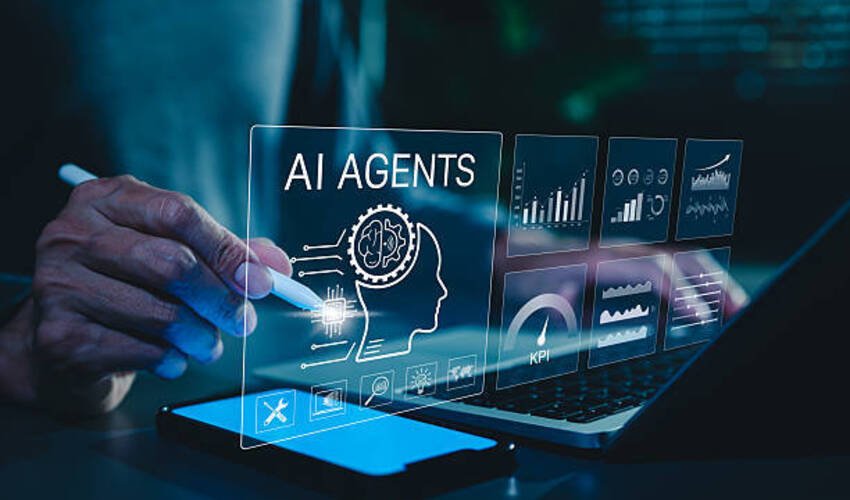The evolution of technology has ushered in a new era where artificial intelligence (AI) significantly enhances knowledge management systems. Companies and organizations are rapidly adopting AI to streamline their operations, make data-driven decisions, and improve overall efficiency. AI’s potential to transform vast amounts of data into actionable insights holds the key to gaining a competitive edge in today’s fast-paced environment.
Within knowledge management, tools like AI knowledge management systems play a pivotal role in providing contextual information and refined insights. If you’re looking for a platform, Upland’s Panviva is a strong choice to help improve how information is found and used. By presenting data in an understandable and actionable format, they bridge the gap between raw information and practical application, ensuring that knowledge is not just stored but also effectively utilized. In this article, we’ll explore how AI is shaping the future of knowledge management systems and what benefits this synergy brings to the table.
Understanding the Intersection of AI and Knowledge Management Systems
The intersection of AI and knowledge management systems represents a significant leap forward in managing organizational knowledge. AI adds layers of intelligence to traditional knowledge management systems, allowing for advanced data sorting, error reduction, and predictive analytics. These enhancements enable organizations to harness the full potential of their intellectual resources in previously unimaginable ways.
Knowledge management systems serve as repositories for a company’s collective wisdom, incorporating documents, procedures, and expertise. By integrating AI technologies, these systems can now automatically categorize and tag information, making it more accessible and easier to retrieve when needed. Furthermore, AI can identify patterns and connections between different pieces of information, creating a more holistic and interconnected knowledge base.
AI’s cognitive capabilities extend to natural language processing (NLP), which allows systems to understand and interpret human language with increasing accuracy. This development is particularly useful for global companies that operate in multilingual environments, ensuring that knowledge is not only preserved but also understood across different languages and cultures.
An essential aspect of implementing AI into knowledge management is ensuring that the technology aligns with the company’s goals and complements human expertise rather than replacing it. As stakeholders are increasingly required to interact with AI-powered systems, there’s a growing emphasis on designing human-centric interfaces and ensuring seamless collaboration between people and machines.
Enhancing Data Analysis and Interpretation With AI
Alt text: A group of professionals observes a vast digital wall displaying data patterns, representing AI knowledge management advancing collaborative data analysis and interpretation.
Data is the lifeblood of modern organizations, and AI is revolutionizing how this data is analyzed and interpreted. Advanced algorithms can sift through enormous datasets, identifying trends and insights that would be impossible for humans to uncover in a reasonable timeframe. This robust data analysis capability allows companies to respond to market changes swiftly and make informed decisions.
AI systems are also capable of continuous learning, meaning they can adapt and improve over time without explicit programming. As these systems process more data, their accuracy and reliability in data interpretation improve, providing companies with a constantly improving tool for decision-making. This dynamic analysis provides a competitive edge in recognizing opportunities and risks.
Moreover, AI can automate the time-consuming process of data collection and cleaning, which previously required significant human intervention. By streamlining these processes, organizations can allocate human resources to more strategic tasks, such as hypothesis formulation and creative problem-solving.
AI-Driven Personalization in Knowledge Delivery
Alt text: A professional gestures toward digital dashboards displaying analytical charts and graphs in a modern office, illustrating AI knowledge management for personalized information delivery.
Personalization is a significant advantage AI brings to knowledge management systems. By understanding individual user patterns and preferences, AI can tailor information delivery to match each user’s needs. This ensures that employees have access to relevant knowledge at the right time, enhancing productivity and engagement.
Personalization also extends to customer experiences. AI enables support systems to provide bespoke assistance based on a customer’s previous interactions and preferences. This level of personalization not only increases customer satisfaction but also streamlines support workflows, enabling employees to focus on more complex tasks.
AI-fueled recommendation engines are another example of how personalization manifests in practice. These engines suggest relevant resources, documents, or courses of action to users, much like a personal assistant would. By proactively addressing information needs, AI reduces the cognitive load on individuals, promoting a more intuitive knowledge management experience.
The synergy between AI and knowledge management is transforming the landscape of how we process, interpret, and utilize information. From enhancing accuracy and efficiency to personalizing user experiences and fostering innovation, AI’s infusion into knowledge management systems is paving the way for a smarter, more responsive future. As these technologies continue to evolve, they will undoubtedly redefine the boundaries of organizational knowledge and the potential of human-machine collaboration.
Read Dive is a leading technology blog focusing on different domains like Blockchain, AI, Chatbot, Fintech, Health Tech, Software Development and Testing. For guest blogging, please feel free to contact at readdive@gmail.com.





